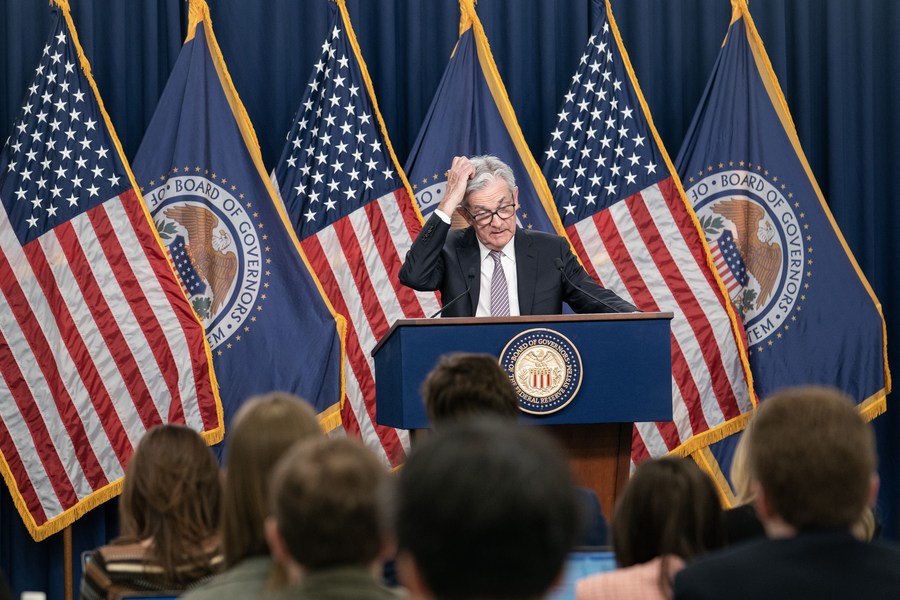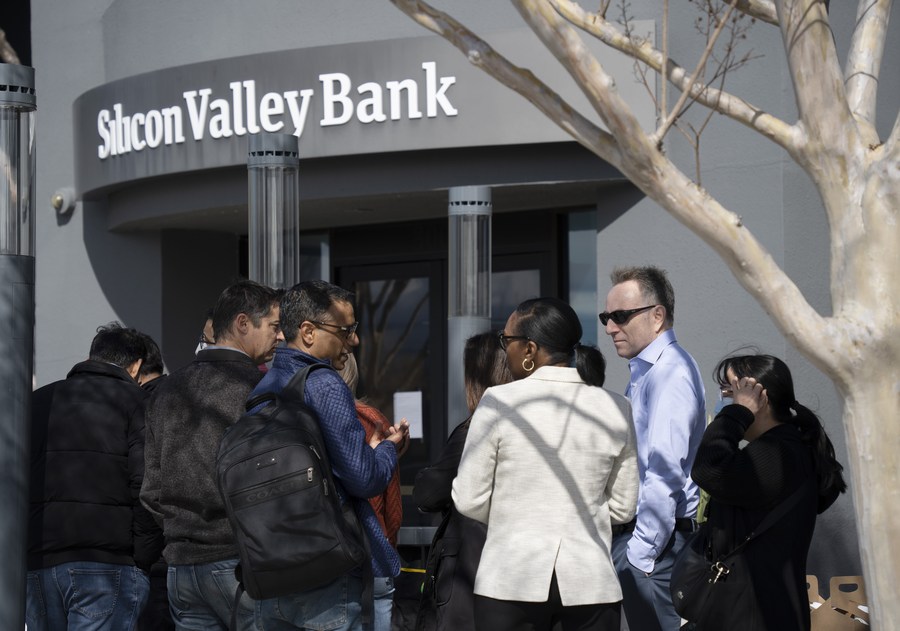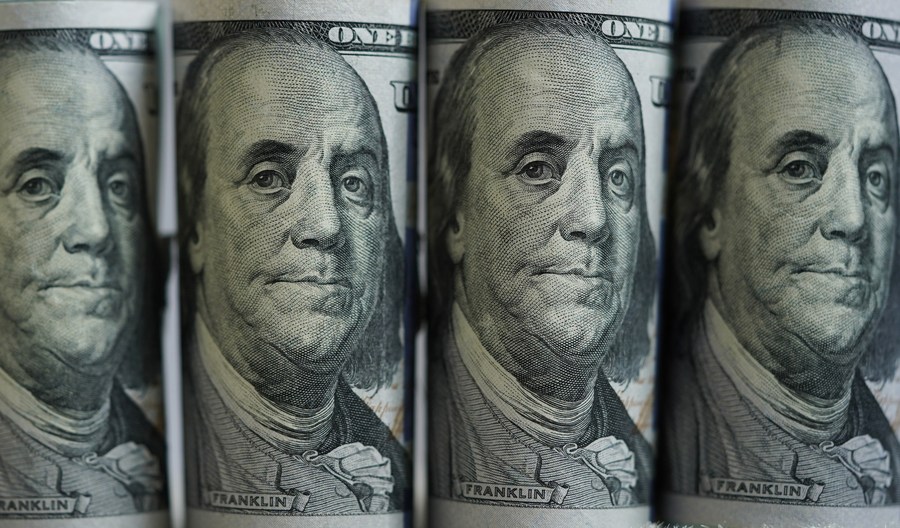Interview: Fed's aggressive rate hikes destabilize regional banks: JPMorgan strategist

U.S. Federal Reserve Chair Jerome Powell (Rear) attends a press conference in Washington, D.C., the United States, on May 3, 2023. (Xinhua/Liu Jie)
"The problem of rising interest rates is undermining the economics of small regional banks. It's going to make these banks much less willing to lend. I'm worried about a credit crunch, whereby small banks are less willing to lend to small businesses. That could cause the economies to slow down more rapidly," said Kelly.
NEW YORK, May 6 (Xinhua) -- The aggressive monetary tightening by the U.S. Federal Reserve since early 2022 is destabilizing regional banks, and a looming credit crunch could further dent economic growth in the United States, said David Kelly, chief global strategist with JPMorgan Asset Management.
The U.S. Federal Reserve on Wednesday raised the target range for the federal funds rate by 25 basis points to 5-5.25 percent, which marks the 10th interest rate hike in about a year.
"The Federal Reserve waited too long to raise interest rates," now the shock from Fed's aggressive monetary tightening "is really destabilizing the regional banks," said Kelly in an interview with Xinhua on Monday.
On the current banking crisis, Kelly said that the U.S. central bank was correct to blame itself for some of the problems with Silicon Valley Bank, which collapsed in March.

People queue up outside the headquarters of the Silicon Valley Bank (SVB) in Santa Clara, California, the United States, March 13, 2023. (Photo by Li Jianguo/Xinhua)
Though the U.S. regulators are doing well in dealing with the crisis, "another part of the government, the Federal Reserve, is really contributing to the crisis by raising short-term interest rates too high and too quickly," he said.
"I'm not as comfortable with what the Federal Reserve is doing, because the Federal Reserve has been too aggressive in raising interest rates to deal with an inflation problem that was going to go away anyway," said Kelly.
On inflation, Kelly said that the Fed is misreading the inflation problem, and that's where they're making a mistake. The Fed should be patient as inflation doesn't collapse overnight but it does gradually come down.
The strategist expected problems in the U.S. banking sector but did not see any big banks getting into trouble.
More banks will borrow money from the open market or the Fed to put liabilities onto their balance sheet to match their assets and the practice is undermining the economics of the regional banking system as these liabilities carry a higher interest rate than their deposit, Kelly explained.

Photo taken on March 19, 2020 shows U.S. dollar banknotes in Washington D.C., the United States. (Xinhua/Liu Jie)
"The best way to fix it," he said, "is for the Federal Reserve to stop raising rates and bring rates down to a more medium level and just let inflation gradually fall."
He also expressed concern about a credit crunch arising from the current banking turmoil and its drag on economic expansion.
"The problem of rising interest rates is undermining the economics of small regional banks. It's going to make these banks much less willing to lend. I'm worried about a credit crunch, whereby small banks are less willing to lend to small businesses. That could cause the economies to slow down more rapidly," said Kelly.
Small businesses are "relying on the generosity of the regional bank to keep giving them money to make sure that they can make payroll," he said.
"This credit crunch could cost a lot of jobs before the end of the year and cause a lot of small business bankruptcies," Kelly warned.

Photo taken on May 1, 2023 shows a sign at the JPMorgan Chase &Co. headquarters in New York, the United States. (Photo by Michael Nagle/Xinhua)
The United States has more than a 50 percent chance of entering into a recession before the end of this year, according to Kelly.
Still, Kelly only expected a mild recession, as the U.S. economy is not on the edge of a "cliff" but a "swamp." "It'll get softer, pretty soggy and it's going to be hard to get out of it. But I don't expect a big recession."
It's irresponsible for the United States to have a debt limit at all as the appropriate way to manage the budget is by managing taxes and appropriations, Kelly said, adding that if the United States default on its debt obligations, the markets will fall very rapidly and the debt ceiling will get suspended.
"So I expect that we will see a suspension of the debt ceiling at some stage, but I think we'll see market volatility between now and June," said Kelly.
Photos
Related Stories
- Filipinos slam defense guidelines with U.S. violating national sovereignty
- Russia-U.S. ties on verge of open armed conflict over Ukraine: Russia's deputy FM
- COVID makes 4th leading cause of death in U.S. in 2022: CDC
- Report discloses CIA cyberattacks against other countries
- Subway killing stuns, divides New Yorkers: New York Times
Copyright © 2023 People's Daily Online. All Rights Reserved.









